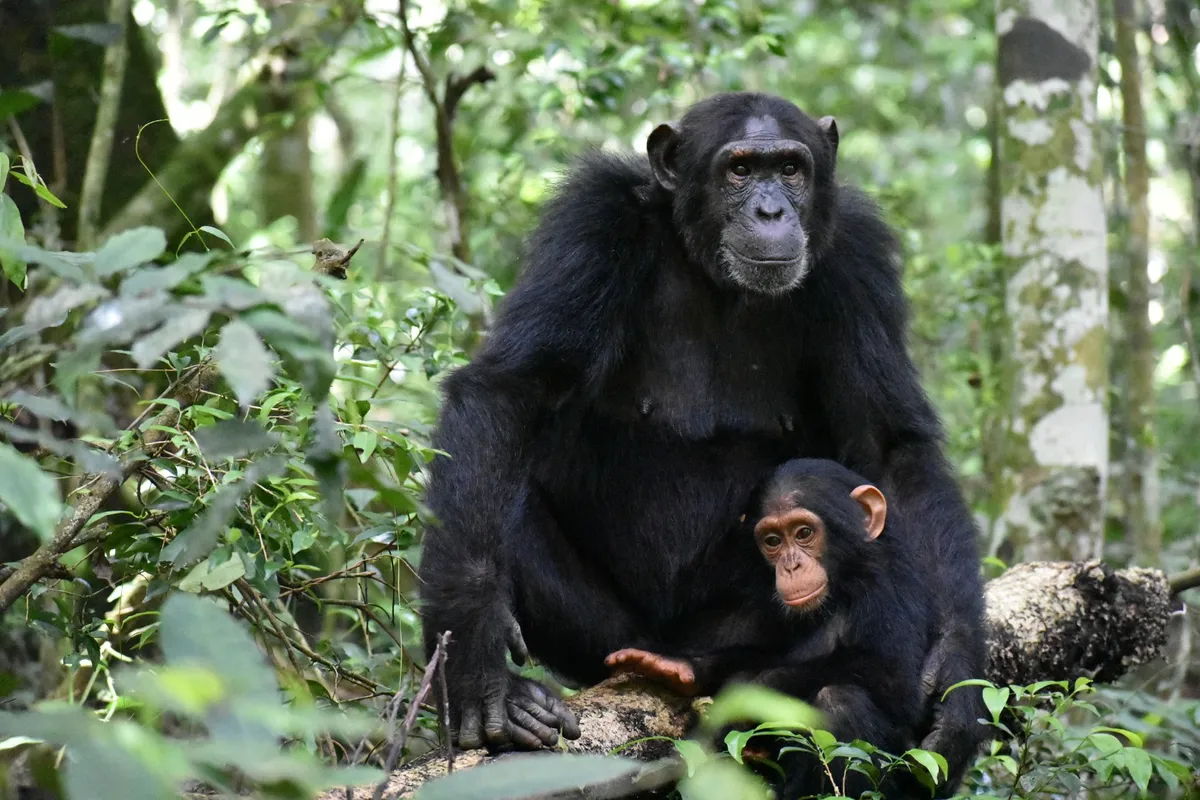It’s a scenario that every mother can relate to. You’re hungry, you’re exhausted but still your kid wants to play. So, what do you do? If you’re a chimp mum, play comes first.
New research in Current Biology shows that chimpanzee mums prioritise tickling, chasing and playing ‘airplane’ with their youngsters, even when food is scarce.
Playing vs foraging
Play is not very common in the wild, at least among adult animals. It might be fun, but it uses up a lot of energy, so the practice tends to be restricted to youngsters, where it plays a key role in the development of physical and social skills.
Adult chimps are unusual because they play with each other and with their young. Until now, scientists assumed that when food supplies dwindled, the adults would ditch play in favour of foraging.
In a new study, a team of researchers from Tufts University analysed around 4,000 adult play bouts recorded over a decade of observations of the Kanyawara community of chimpanzees living in Uganda’s Kibale National Park. They found that when food supplies are scarce, most adults stopped playing, but mothers continued to play with their young.
Patterns of play
The chimps’ social structure may help to explain why mothers continued to play with their young even when they're hungry. Chimps have a very fluid social structure called fission-fusion, which means that a group of, say, 60 chimps may have smaller groups break away for a while and then merge back.
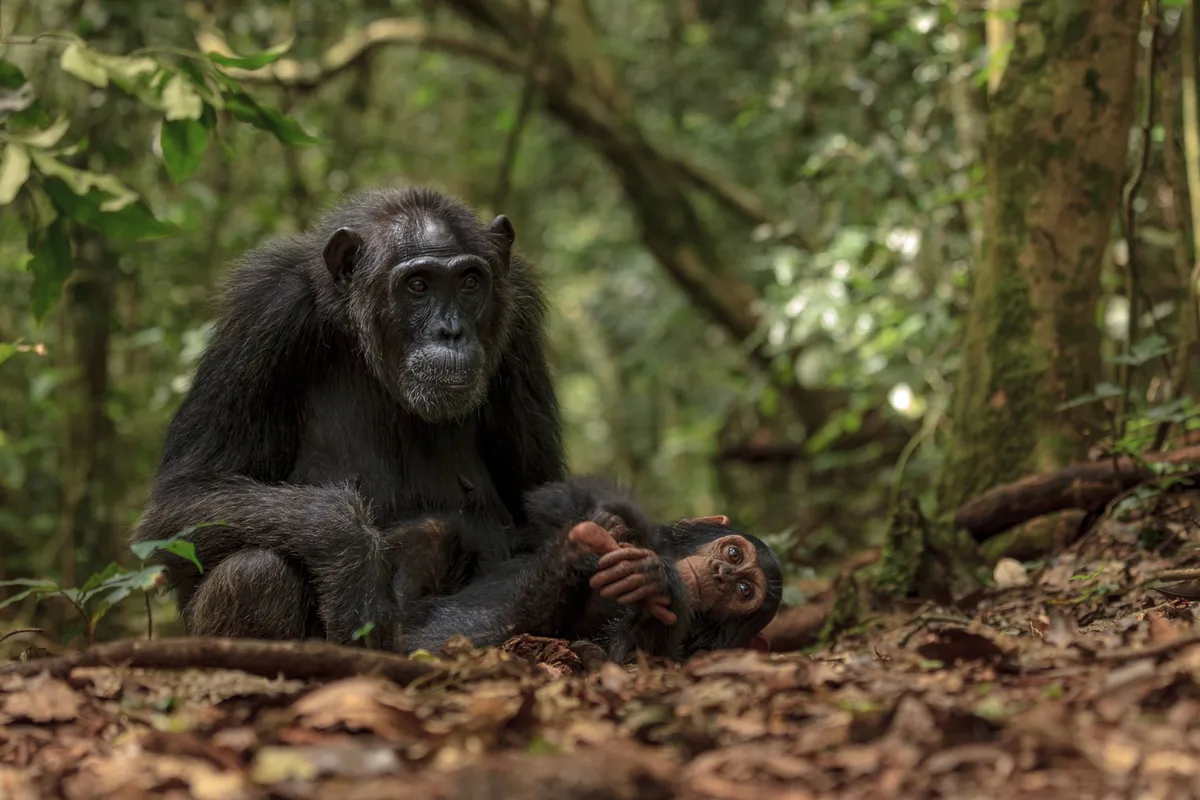
When food supplies dwindle, chimp mothers tend to peel off and form either smaller groups or a solo unit with their offspring. This reduces the competition for food, but it means that the youngsters have fewer available playmates of their own age. “The moms become the primary playmates,” says evolutionary biologist Kris Sabbi, who was part of the research team.
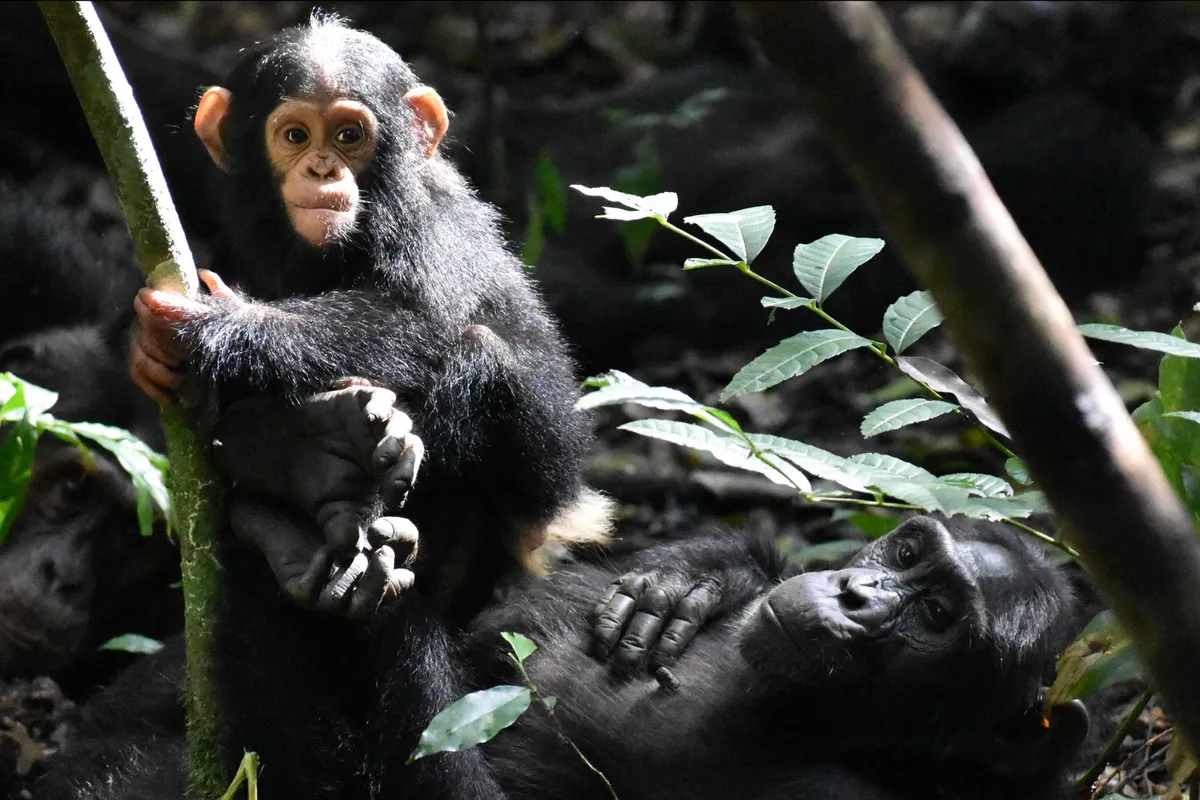
With 13 species of resident primate, including over 1,000 chimpanzees, Kibale is the most primate-dense forest in the world. Researchers began studying the chimps there in 1987, and since then have made detailed recordings of almost every observable behaviour, including feeding, grooming, aggression and play.
Chimp play varies between males and females. Male play often involves a lot of rough-housing and wrestling, whilst female play tends to be more subdued.
“You see them practice carrying things – a kind of preparation for future maternal behaviour,” says Zarin Machanda, who led the study.
“Males often size each other up, and when they hit their second birthday, play style changes and can get rougher.”
Mums provide a safe space to play, so when this happens, juveniles and older infants often dump their peers and go back to playing with mum.
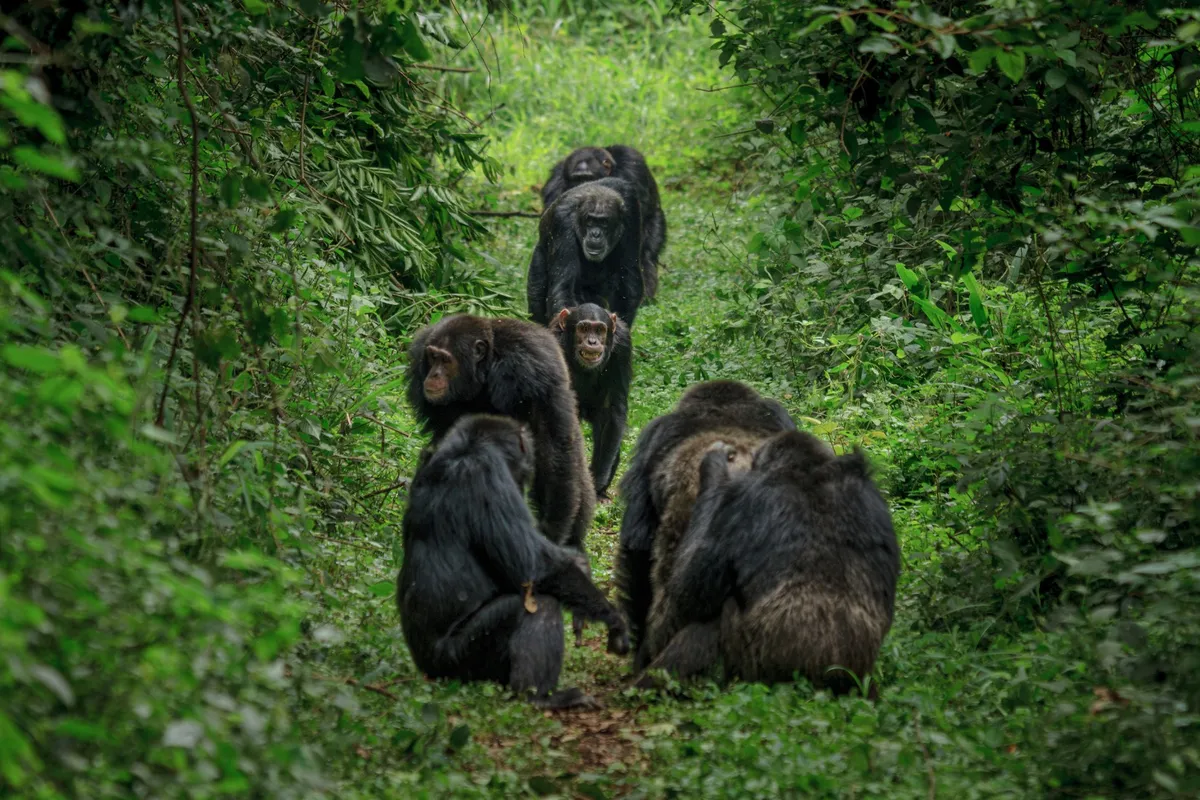
Maternal play in other species
Maternal play is rare amongst non-human animals. It has been observed in a few other species, including bottle-nosed dolphins and Yucatecan spider monkeys, which share key characteristics with the chimpanzees.
They all have a fission-fusion style of social interaction, and they all spend more time growing up, relative to other animals. They also have highly developed brains and live in structured groups, with very specific rules governing interactions between individuals.
Longer childhoods extend the opportunity for play, giving youngsters more time, not just to build physical skills, but to learn the rules of social interaction.
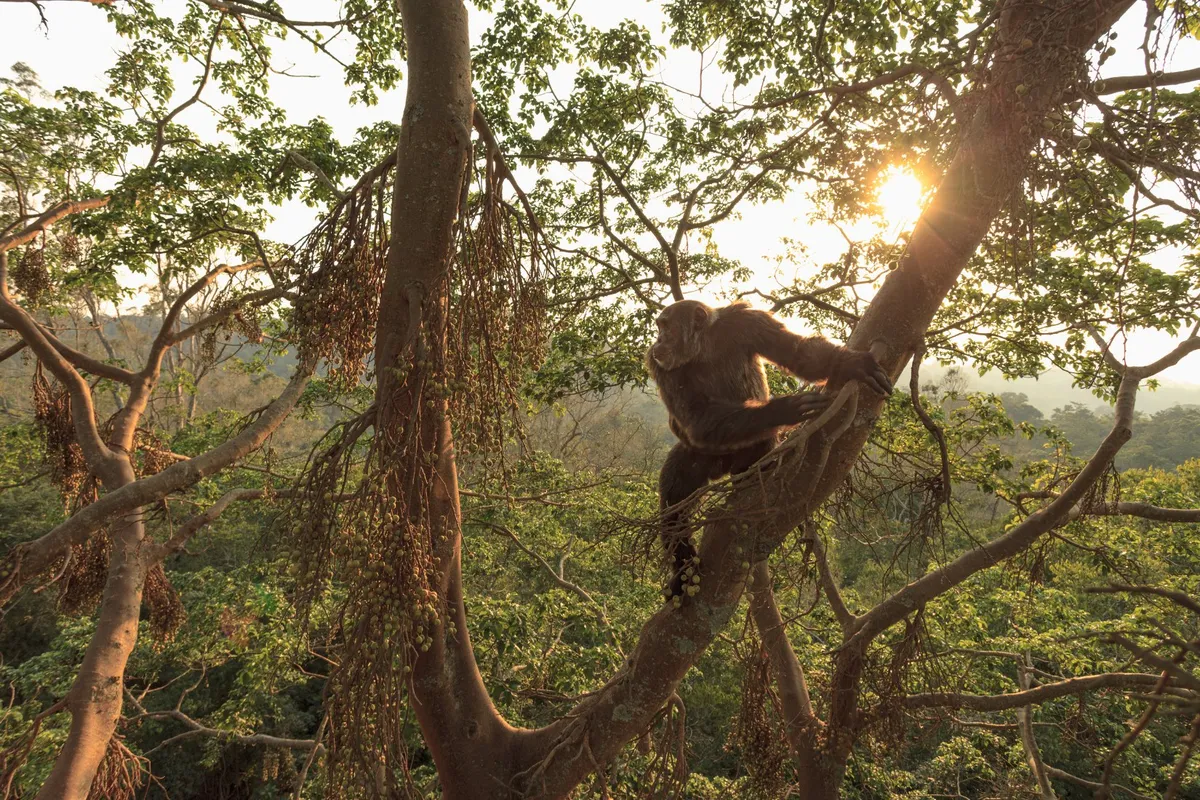
“It’s a lovely study,” says chimp expert Catherine Hobaiter from St. Andrews University, who was not involved in the research.
“It reinforces the importance of play for young apes as they grow, but it’s also a good reminder that play is fun! I’ve been lucky enough to watch chimpanzees playing with their little ones, and I’m sure that they are enjoying it just as much as their children do!”
“I can also relate to the chimp moms and the energy cost of play when their kids are jumping on them, and they just want to take a nap,” says Machanda. “But watching the chimps has made me a better parent.”
